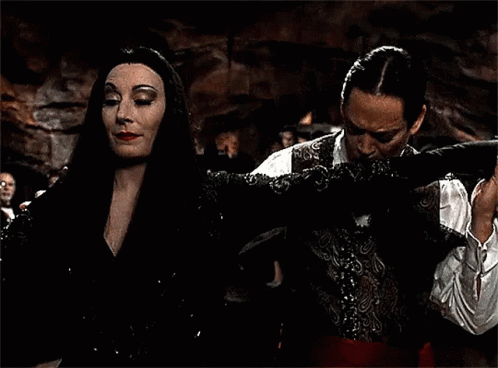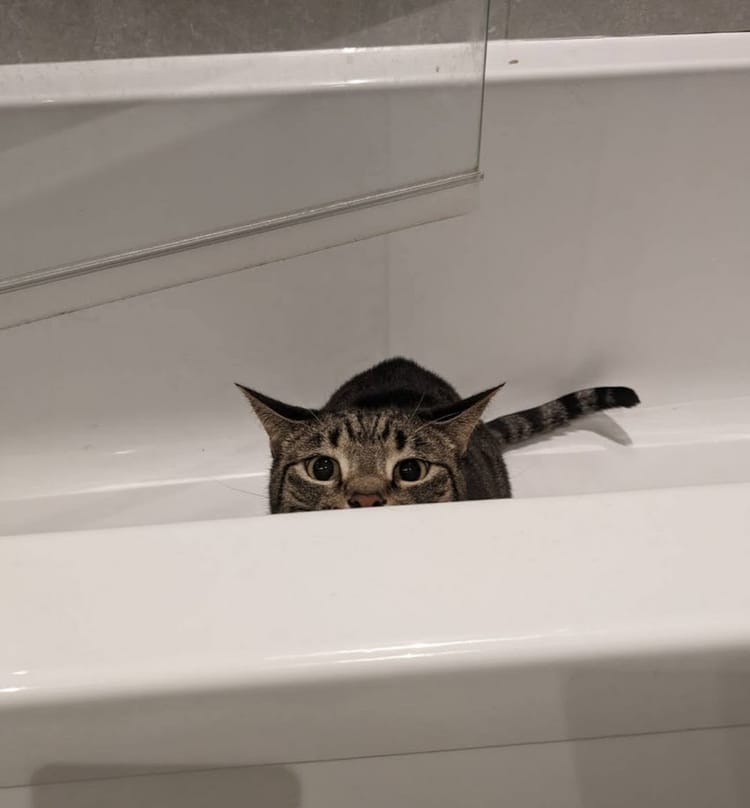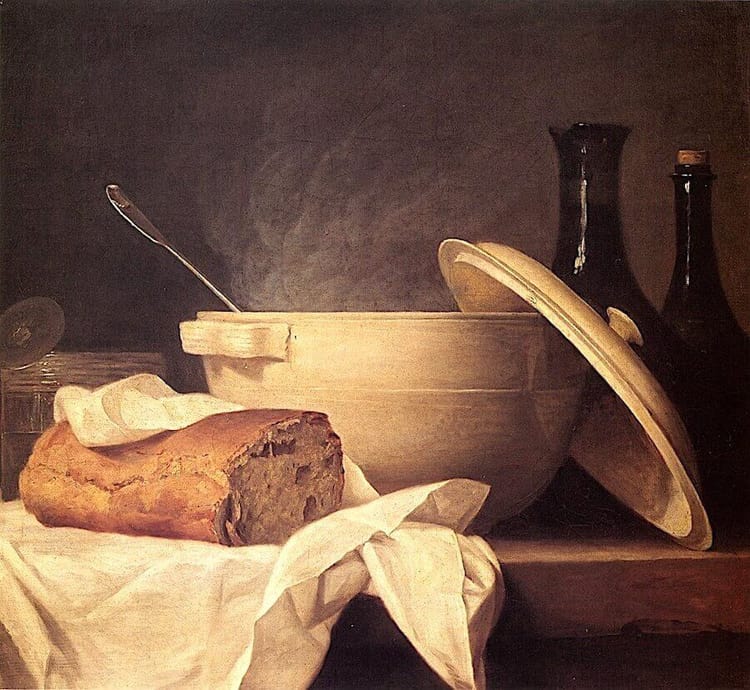Five October things

Hello loves!
Logs are crackling in the fireplace. Addams Family Values is on. Blackberry and rosemary gin is infusing on the kitchen counter. My calendar is full of Halloween-themed history talks, Buffy the Vampire Slayer drag cabaret singalongs, and classic horror movie screenings. London's feeling decidedly Octobery. 🦇
I've barely written a word in weeks, which always makes me feel somewhat unsettled. I'll be getting my editorial notes on Femme Feral soon, and in the meantime, I should be working on my next novel - but I haven't been! Instead, I completed a chunky non-writing side-project which gave me an excuse to go dancing in Joburg (at an insanely cool bar that was also in a Woolworths parking lot: somehow the most Joburg thing ever). I slept in a hut on top of Table Mountain. I marked what felt like 7,000 student manuscripts and squeezed in a few public speaking gigs. I watched a troop of baboons foraging in the Cederberg. I spent time with my partner and my mum and my brother and my niece, and with some of my dearest and oldest friends. Frankly - I think I needed a damn break.
I spent a lot of the summer in therapy, dredging up some very old wrecks from the ocean of my heart. It was productive but exhausting. So it's a relief to be back home in London, in my favourite city in my favourite season. I'm calling this LUXURY AUTUMN and challenging myself to really indulge in the abundance of my life. It's fluffy socks, fresh figs and cosy books all the way, baby!
Here are five luxurious things I wanted to share with you.
1 - Great African sci-fi and fantasy
One of my favourite panels at Glasgow Worldcon back in August was "Through an African Lens" with Wole Talabi, Lauren Beukes and T.L. Huchu. They threw out some brilliant suggestions for contemporary African science fiction and fantasy novels. Read the full list here.
Next on my "to-read" list is Womb City by Motswana author Tlotlo Tsamaase, described as "a genre-bending Africanfuturist horror novel blending The Handmaid’s Tale with Get Out in an adrenaline-packed, cyberpunk body-hopping ghost story exploring motherhood, memory, and a woman’s right to her own body." Uh, hi!
2 - Getting teens interested in investing
I got a question from a reader recently about how to give teens some (safe) practice with investing.
I have read your money book, and I have a 10-year-old for whom I have just ordered the teen version.
As part of his education, I want to get an app that will allow him to learn how to invest (either with real money, or with a fictional account), but I am struggling to find one that works outside the USA.
Do you have any recommendations?
In case any of you are in a similar situation, here was my reply:
Start with a fictional portfolio, and move onto real money once your teen's ready. A simple, free way to do this is to agree on a fictional budget and have them set up a portfolio on Google Finance (any free portfolio tracking app can work, but Google Finance is free and pretty easy to use). This can be a great activity to do together, chatting as you do about what they'd choose and why. Encourage them to add some individual shares of companies they're already familiar with, and also to put some of their fake money into a simple global ETF product, so they can compare the results.
In South Africa, EasyEquities allows you to create a demo portfolio which is a great alternative.
Check your teen's portfolio with them over the next couple of weeks. They'll probably lose money! This is a great opportunity to explain to them the value of sticking with "wobbly" investments over the long term and why investing is not a get-rich-quick scheme.
If it feels age-appropriate for your child, I also recommend letting them look at your real investments with you, and having a conversation with them about it. What are you investing for, and why? How do you make your own investment decisions?
Once they're ready to play with real money, you'll need to open something called a "custodial account" for them (this is an under-18 investment account, usually managed/linked to an adult account). In South Africa, the EasyEquities Youth Account is my go-to, but most countries have a version of this.
One very important point: make sure you find something that doesn't offer CFDs or any kind of risky leverage products, and ensure accounts are pre-funded rather than linked to a bank account, so there's a hard limit to how much money can be lost. Here's a story about why (content warning: suicide).
Good luck!
3 - Polar Nightmares
As the weather cools, I've been returning to a perennial obsession: the eldritch horrors of polar exploration.
Dan Simmonds' The Terror is my all-time favourite book on this topic - I must have read it 8 or 9 times. It's a fictionalised take on the 1845 Franklin expedition into the Arctic that turned into a real-life nightmare of scurvy, cannibalism and mass-starvation (uh, spoiler alert for a 180-year-old historical event?). Simmonds' novel adds a layer of thrilling supernatural horror on top, and uses the story as an exploration of colonial hubris. There's a great TV adaptation, too, but the novel's perfect.
For something less soul-crushing, I recently loved Darrel Bristow-Bovey's Finding Endurance about Ernest Shackleton's Antarctic Endurance expedition, which was one of ones where most of the crew miraculously did NOT die. It's a gorgeous, lyrical book that interweaves the story of how Shackleton's leadership pulled 27 people through unimaginable trials, with moving personal history about the author's relationship with his father. I found those sections deeply relatable; like mine, Bristow-Bovey's father is from the Bluff, and had far more ambition than luck and a creative relationship with the truth.

There are some scrumptious descriptive passages which make me almost want to go to Antarctica:
Under the circling sun the ice does things to light to which we are not accustomed. Colours emerge and dance in the crystal depths. At the waterline of icebergs, where the lapping sea carves out grottoes and caves, the refracting sunlight makes rainbows in the ice that mirror in the water below then reflect back up onto the ice in overlapping rings and polychrome hoops. In the ledges and faces of the bergs are unexpected hues: not just blue and purples but golds and ochres, sage green, herb green, all the greens of the forest. On clear bright days the world opens, immense: you can see the flaws and cracks in distant bergs, a flying petrel on the horizon, a penguin on the moon, but although your eyesight is newly keen, you cannot trust your eyes: they have evolved to predict and make sense of an altogether different world.
A similarly hopeful book is Madhouse at the End of the Earth by Julian Sancton, about the Belgica, another Antarctic crew who (mostly) survived but was stuck in the endless polar night for months. The crew started to go slowly insane, but were also pulled through by strong leadership; in this case, mostly led by two brave youngsters named Roald Amundsen (who later became the first person to reach the South Pole) and Frederick Cook (who claimed to be the first person to reach the North Pole, was uncovered as a fraud, and spent a good chunk of his life in jail). It's a beautiful analysis of what keeps people sane in dire circumstances, and a fascinating look at the friendship that shaped two of the key figures in the Age of Polar Exploration.
Although personally, I'm more into the grim endings than the ones where everyone makes it out alive, so I particularly love polar horror. Other favourites in that vein include:
- Ally Wilkes' two brilliant polar exploration horror novels Where the Dead Wait and All the White Spaces. If you enjoyed The Terror but wish it were queerer and featured more women, you'd love Ally Wilkes.
- Dark Matter by Michelle Paver is a gentler (but still creepy) ghost story about a man stuck in an Arctic hut all alone... maybe.
- Outpost by Adam Baker is The Walking Dead in the Arctic.
- The two classic polar horror stories are Edgar Allen Poe's The Narrative of Arthur Gordon Pym of Nantucket and H.P. Lovecraft's At the Mountains of Madness (Lovecraft's racism can make his work unreadable, but it's not visible in that story). 1938's Who Goes There? by John Campbell is also good fun, and it inspired my all-time fave horror film (John Carpenter's The Thing).
- The White Vault is a terrifying found-footage style audio drama about a group sent to investigate a remote outpost crew in Svalbard that's gone mysteriously silent. You can listen on any podcast app.
4 - A Survive the Century shoutout
It was lovely to see Survive the Century, the climate game I co-created with Simon Nicholson and Christopher Trisos (with help from dozens of brilliant contributors), mentioned in this round-up of "20 Video Games You Should be Required to Play Before Becoming President".

5 - Family recipes
Lastly, thank you for your moving (and often delicious) responses to my email about food! I especially enjoyed the photos many of you sent me of old family cookbooks, like this one from my old friend Mieke, of the hand-written recipe book that her grandmother began in the 1970s, which her mother continued, and which now belongs to her.

"The apple tart is in my grandmother’s handwriting and the crunchies are in my mom’s handwriting. These recipes have been favourites in my family my entire life."
Wishing you all the luxuries of October,
Sam ❤️







Member discussion